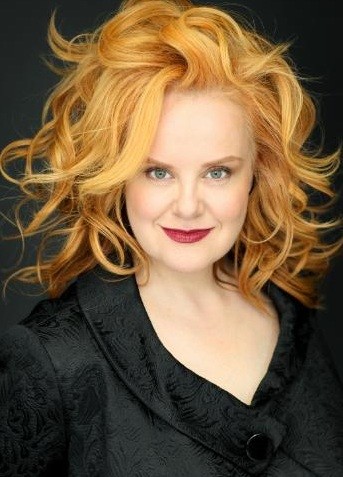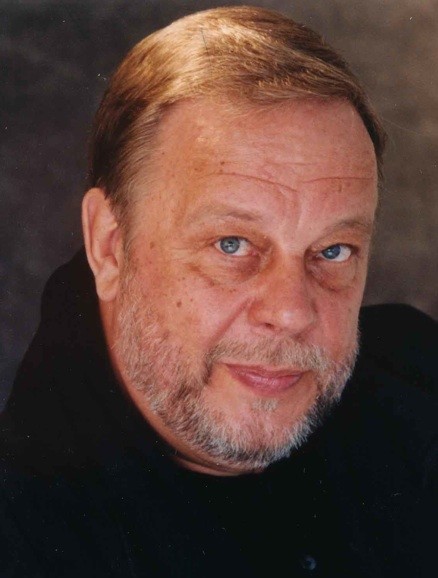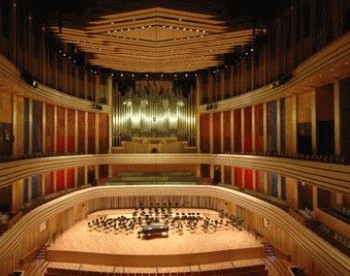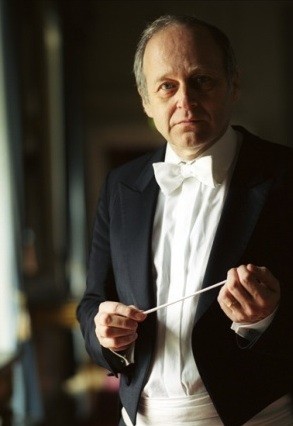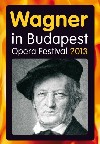Opera Thrives in Budapest with Parsifal
The Palace of Arts an Acoustical Masterpiece
By: Susan Hall - Jun 23, 2013
Budapest, Opera and The State of a State.
June 22, 2013
Budapest has not recovered as rapidly as other countries of the old Soviet sphere. Prague, where Unesco has invested a fortune in renovation to create a Disney aura, is a tourist magnet. Brides and grooms from the world over come here to be married. The Charles Bridge at dawn is packed with couples in formal attire commiting their marital vows to memory in a photograph with the old castle in the background.
Budapest is the more beautiful city, as the wide Danube divides Buda from Pest. But here the magnificent old buildings are crumbling. World financial institutions stay away from the country's dictatorship which has left the city in the third world. The Prague government, currently beseiged by accusations of corruption and supporting Russian money laundering to the hilt, still gets big bucks.
Budapest is left to fend for itself How its entrance into the European Union will impact is yet to be seen.
What pleasure is to be had in the city, even as it groans under poverty. From an afternoon at the thermal baths in City Park, just in back of Heroes Square, where water rushes you around in circles in an inner circle, and surprise jets massage your feet, shoulders and back, to a beautfiul performance of Parsifal at the 10-year-old old Palace of the Arts, Budapest is a treat.
Bela Bartok lived here and the acoustical masterpiece housed in the Palace is named for him. Asking for directions, everyone was helpful when they learned my destination was Parsifal. This is still a highly cultured country.
Inside the hall, wood ceiling planks catch the sounds that rise to the top of the hall and thrust them forward. The seats are made of wood, with plush velvet cushioning to sink into. The sides of the hall are also covered in wood. In one section they are colored yellow, bronze and red to catch the eye as well as the ear.
Although the hall seats 1700, it feels much larger, like a cathedral. For this production of Parsifal, part of an annual summer Wagner Festival, the spiritual effect was perfect.
Adam Fischer, conducting the orchestra, captured the transcendental sense of place in Wagner's last opera. He is a superb conductor, who quit his post as head of the Hungarian Opera three years ago, in protest against government policies limiting freedom of expression. With other artists born in Hungary, he has fought against homophobic and anti-semitic policies recently advocated by the government.
His presentation of Parsifal sounded and looked perfect in the hall. The production, spare and simple, used every opportunity afforded. Front hall balconies stacking up to the organ pipes on the top level housed for choir-like choruses. The pipes became an altar where a ministerial figure raised arms on high. The pipes were bathed in red and blue lights, like an aurora borealis.
Wings extended to the left and right of the hall were used for entrances. Guernemanz and Parsifal sat in a side orchestra seat to watch the proceedings when they were not on stage. Knights entered marching down the orchestra level aisles.
A production created by Lyon obviously deployed many more resources, but Budapest's, clearly done on a dime, was comparably great.
Petra Lang has both sexual allure and was penitenial demure as Kundry. Her voice is also alluring, as she moves from her narrator role informing the young Parsifal of his origins, to his seduction in the second act and her collapse to death the third.
Guernemanz was Matti Salminen, a Finn still going strong after decades of performance. He sang with a growled bass that suited the role well. Lauri Vasar as Amfortas might well have been walking the stations of the cross as he survived the pain of his open wounds, singing and performing with anguish and baritonal beauty.
Christian Franz' Parsifal had a brilliantly-edged line, which turns softly lyrical at the top. He portrayed a confused, if not a foolish Parsifal, from his first appearance holding a dead swan to his compassionate understanding of Amfortas. His Siegfried, in New York four years ago, was the best of the recent performances of the role.
Centuries of great intellects and musicians, Nobel prize laureates, including economist Milton Friedman, painters and writers have been nurtured in Hungary. The people are cultured and kind. The production of Parsifal is one of the many reasons this country deserves a boost.

